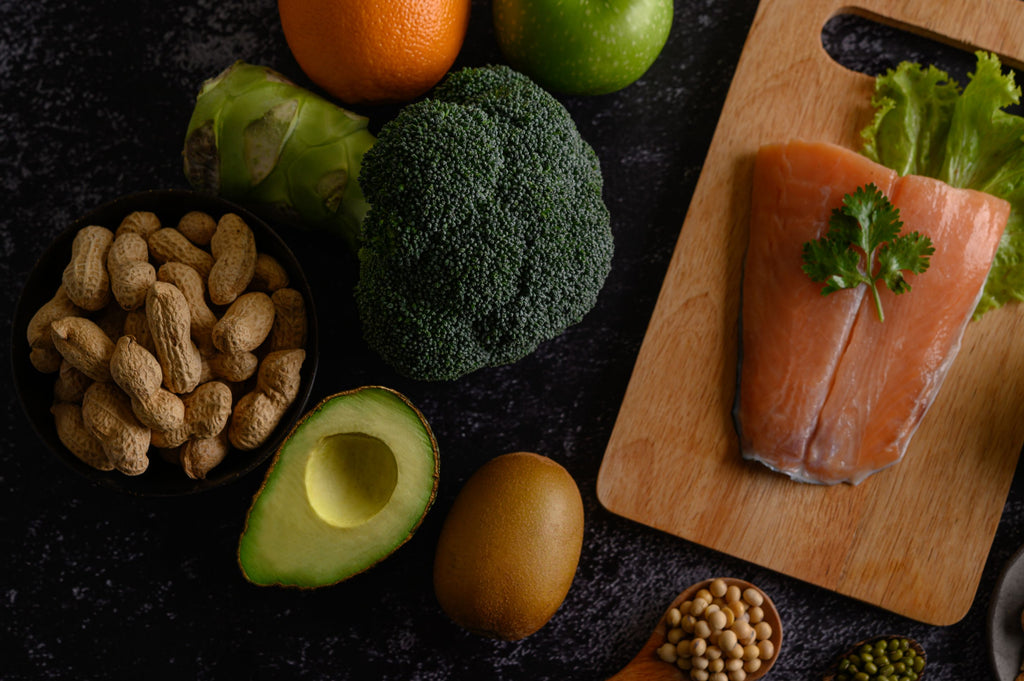What are the Best Foods to Build Muscle?

When it comes to building muscle, nutrition is just as crucial as lifting weights. Without the right nutrients, the body can't effectively repair and grow muscle fibers. Protein is often the first thing that comes to mind, but a balanced diet with a variety of nutrients is key for muscle growth. Consulting with a personal trainer who specializes in nutrition can provide insight into the best foods to maximize muscle-building efforts.
The Importance of Protein in Muscle Growth
Protein is essential for muscle repair and growth, but not all proteins are created equal. High-quality proteins, which contain all the essential amino acids, are critical for muscle development. Lean meats like chicken, turkey, and beef, along with fish, eggs, and dairy products, provide the complete proteins needed for muscle repair after workouts. Incorporating these into daily meals will help support muscle recovery and growth.
Many fitness professionals recommend spreading protein intake throughout the day to ensure the body has a steady supply of nutrients for muscle repair. For example, a meal plan that includes eggs for breakfast, chicken or turkey for lunch, and fish or lean beef for dinner can help maintain optimal protein levels.
Carbohydrates: Fuel for Performance
Carbohydrates are another vital nutrient for those looking to build muscle. Carbs provide the energy needed to fuel intense workouts. Complex carbohydrates, such as brown rice, sweet potatoes, oats, and whole grains, should be included in a muscle-building diet to ensure sustained energy throughout the day.
Post-workout, fast-digesting carbs like white rice or a banana can help replenish glycogen stores, aiding in recovery and ensuring the muscles are ready for the next training session.
Fats: The Forgotten Macronutrient
Healthy fats play an essential role in muscle growth, yet they are often overlooked. Fats are necessary for hormone production, including testosterone, which directly impacts muscle growth. Incorporating healthy fats from sources like avocados, nuts, seeds, and olive oil can boost energy levels and support overall health.
A balanced diet with adequate fats ensures that the body has all the necessary resources to build muscle while also supporting joint health and reducing inflammation after intense workouts.
Nutritional Anecdotes and Real-Life Examples
Many bodybuilders and athletes have experienced significant muscle gains by paying attention to their diet. One well-known example involves an athlete who struggled to increase muscle mass despite consistent training. After consulting a personal trainer, it was discovered that the athlete was not consuming enough protein and carbohydrates. By adjusting the diet to include more lean meats, whole grains, and vegetables, the athlete saw an increase in muscle size and strength within a few months.
A personal trainer shared another case of a client who initially relied heavily on supplements but lacked real food sources of nutrients. After switching to a balanced diet rich in whole foods such as lean proteins, complex carbs, and healthy fats, the client’s energy levels soared, and muscle growth followed quickly.
Best Foods for Muscle Growth
Some of the top foods to include in a muscle-building diet are:
- Chicken Breast: High in protein and low in fat, ideal for lean muscle growth.
- Eggs: Packed with protein and healthy fats, a versatile food for any meal.
- Salmon: A great source of protein and omega-3 fatty acids, which reduce inflammation.
- Quinoa: A complete protein source that’s perfect for plant-based diets.
- Greek Yogurt: High in protein, particularly casein, which digests slowly and supports muscle repair overnight.
- Sweet Potatoes: A nutrient-dense carbohydrate source that provides energy for intense workouts.
- Almonds and Walnuts: Rich in healthy fats and protein, great for snacks or adding to meals.
Practical Tips for Incorporating Muscle-Building Foods
To achieve optimal results, it’s important to structure meals around these key foods. For instance, a breakfast that includes eggs and oats provides a good balance of protein and carbs. Lunch could consist of chicken breast with sweet potatoes and vegetables, while dinner might include salmon with quinoa and a leafy green salad.
For those struggling to meet protein goals, protein shakes can be a convenient option. A whey protein shake post-workout delivers fast-digesting protein to the muscles, aiding recovery. For plant-based options, pea or soy protein powders are excellent alternatives.
The Role of Supplements
While whole foods should be the primary focus, supplements can play a supporting role in muscle growth. Protein powders, creatine, and branched-chain amino acids (BCAAs) are some of the most effective supplements for muscle recovery and growth. However, it’s always best to prioritise a balanced diet first and use supplements to fill any gaps.
Putting It All Together
Building muscle isn’t just about lifting weights; it's about fueling the body with the right nutrients. A diet rich in high-quality protein, complex carbohydrates, and healthy fats is crucial to supporting muscle growth. By incorporating the right foods and spreading intake across the day, muscle-building efforts can be maximized. Consulting with a personal trainer or nutritionist can further enhance results, ensuring that dietary needs are met to support both training and recovery.
-
Posted in
Guides & Tips





